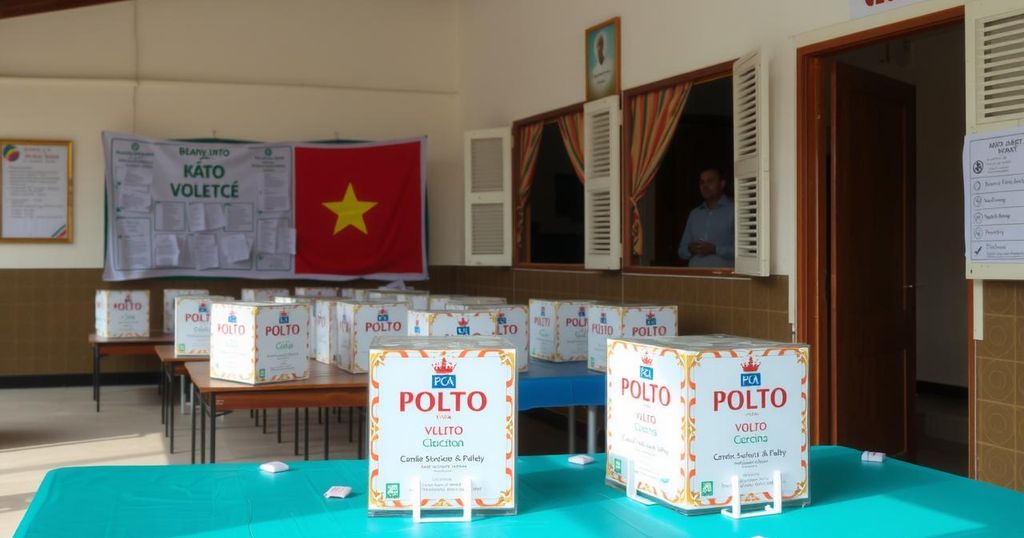World news
ABDALLAH SAMBI, AFRICA, AUSTRALIAN ASSOCIATED PRESS, AZALI ASSOUMANI, COMOROS, ELECTION FRAUD, GOVERNANCE, GOVERNMENT, HAMIDOU KARIHILA, HOPE OF THE COMOROS, INDIAN OCEAN, INDIAN OCEAN ARCHIPELAGO, JUWA, NO, NOUR EL - FATH, OPPOSITION, POLITICS, PRESIDENTIAL ELECTION, REUTERS, SUPREME COURT
Fatima Alavi
0 Comments
Comoros Voters Elect New Parliament Amidst Claims of Irregularities
Voters in Comoros are electing a new parliament amid allegations of election misconduct against President Azali Assoumani’s administration. Approximately 338,000 citizens are eligible to vote, with nearly 100 candidates contesting for the 33 seats. Opposition parties are divided over whether to participate, with some calling for a boycott. Results are expected by Friday.
Voters in Comoros are participating in parliamentary elections for the 33-seat legislature following the re-election of President Azali Assoumani a year prior, an event marked by opposition claims of significant irregularities. The ruling party has dismissed these allegations. On this election day, polling stations opened early, and approximately 338,000 registered voters are set to make their choice. The last parliamentary election occurred in January 2020, with nearly 100 candidates approved by the Supreme Court for the current election.
Assoumani has held power in Comoros since a coup in 1999 and has won three subsequent elections. Critics accuse him of authoritarian practices, suggesting that he is preparing his eldest son, Nour El-Fath, to succeed him after his term concludes in 2029. In 2024, Assoumani conferred substantial new powers on his son, assigning him the role of overseeing all government operations. Some opposition factions, including Juwa, led by former President Ahmed Abdallah Sambi, who was sentenced to life imprisonment in 2022, are advocating for a boycott, while other opposition groups oppose this position.
Opposition candidate Hamidou Karihila, running for the Hope of the Comoros party, expressed, “The Azali regime is weakened … by participating in these elections we are contributing to further exposing the flaws in its system and accelerating its inevitable fall.” Results from this election are anticipated by Friday, reflecting a critical moment in Comoros’ political landscape.
Comoros is an archipelago located in the Indian Ocean, experiencing political instability and governance challenges over recent decades. President Azali Assoumani has been a pivotal figure in Comoran politics since coming to power through a coup in 1999. His administration has faced claims of authoritarianism, particularly regarding potential dynastic succession and the increasing influence granted to his family members. Within this context, parliamentary elections hold significance for assessing the political environment and the future course of governance in the country.
The parliamentary elections in Comoros represent a vital juncture in the nation’s political trajectory amidst ongoing concerns of authoritarianism under President Azali Assoumani. With a history of contentious electoral processes and a divided opposition, the outcome will be closely watched both domestically and internationally. As the nation awaits the election results, the engagement of voters may inform the future direction of governance and democratic participation in Comoros.
Original Source: www.muswellbrookchronicle.com.au




Post Comment